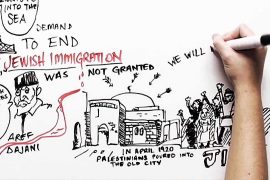1) UN Watch reports on celebration of the Hamas October 7th massacre by UNRWA teachers.
“This report shows that as soon as news of the horrific slaughter broke, which was livestreamed on social media by some of the terrorists, United Nations Relief and Works Agency (UNRWA) staff immediately celebrated and justified it on Facebook.”
2) The ITIC provides a profile of Hamas’ Saleh al Arouri.
“Saleh al-Arouri is considered number two in Hamas. He serves as deputy chairman of Hamas’ political bureau and is responsible for Hamas’ terrorist activity in Judea and Samaria. Al-Arouri is responsible for Hamas’ military buildup, its entrenchment in Lebanon, and the strengthening of the movement’s ties with Iran. He is known for his militant statements against Israel, in which he often called for the killing of IDF soldiers and settlers in Judea and Samaria. He is also known for encouraging the escalation of terrorist activity in Judea and Samaria and was behind many terrorist attacks in Judea and Samaria, including the abduction of the three youths in June 2014. At the same time, he conducts political activity, including contacts with Egyptian General Intelligence. Since 2018, al-Arouri has also been wanted by the American State Department.”
3) Writing at CNN, urban warfare expert John Spencer gives his analysis of Israel’s adherence to the laws of armed conflict.
“Scenes of devastation, like Israel’s strikes on the Jabalya refugee camp in northern Gaza earlier this week, quickly spark accusations that Israel is engaging in war crimes, such as indiscriminately killing civilians and engaging in revenge attacks. But war crimes must be assessed on evidence and the standards of armed conflict, not a quick glimpse at the harrowing aftermath of an attack.”
4) At the JCPA, Khaled Abu Toameh explains ‘Why a Humanitarian Ceasefire Will Bolster Hamas’.
“A “humanitarian” ceasefire means that only Israel will stop fighting. There is no way of separating Hamas from the Palestinian population since Hamas is an army without fixed bases that operates in residential areas and uses civilian infrastructure such as mosques and schools. A humanitarian “pause” would benefit Hamas and allow them to regroup.”
5) At WINEP, Anna Borshchevskaya looks at ‘Russia’s Relationship with Hamas and Putin’s Global Calculations’.
“At least 16 Russian citizens died as a result of Hamas’s attack on Israel on 7 October, but Moscow did not condemn Hamas directly. And while the Kremlin labels some of its own—peaceful—political opponents as terrorists, it did not give this designation to Hamas.
Instead, President Vladimir Putin blamed US policies for the current Middle East crisis. He compared Israel’s blockade of Gaza to Nazi Germany’s siege of Leningrad—one of the most traumatic events in Russia’s history.”
6) At the City Journal, Asher Stern and Eitan Fischberger discuss ‘How Hamas Weaponizes International Law’.
“As the world grapples with the immediate geopolitical effects of the Hamas-Israel war, another battle is unfolding: Hamas’s strategic manipulation of international humanitarian law to undermine Israel on the global stage.
Hamas is acutely aware of Israel’s dedication to abiding by the laws that govern warfare. As a democratic state, Israel has consistently demonstrated its commitment to minimizing civilian casualties and adhering to these principles. In fact, Hamas exploits Israel’s commitment to the laws of war while falsely touting its own.”






Nobody in my large circle of friends and in my clubs EVER tunes in to the BBC News because of its blatant bias and support of Iran’s terrorist puppets – yet we are bound by law to pay for Maqbool’s traitorous garbage. This situation must change.